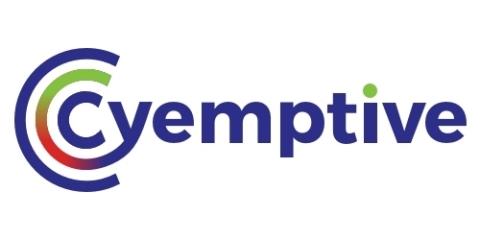Tag Archive for: Defend
Cyemptive Technologies Announces Their Recently Issued Patent That, For the First Time in History, Provides the Key to Successfully Defend Against Ransomware, Malware and Steganography
/in Internet Security
SNOHOMISH, Wash., September 22, 2021–(BUSINESS WIRE)–Cyemptive Technologies, Inc., a provider of pre-emptive cybersecurity products and technology and winner of the Department of Homeland Security’s national competition for most innovative border security-related solution in the market, today announced their recently issued patent that, for the first time in history, provides a patent-validated solution to prevent ransomware, malware and steganography assaults.
According to industry research, companies are succumbing to increasingly sophisticated ransomware and malware attacks at a cost of more than $7.5 billion in 2019. Even prior to the COVID pandemic, ransomware attacks have been growing by more than 20% year over year.
“Current processes such as big data analytics, machine learning, artificial intelligence, deep learning, checksum technology, known signatures, API monitoring, and human intervention are obviously not working against ever-evolving, zero day ransomware variations,” said Bryan Seely, Cyemptive’s Senior Security Architect and well-known cybersecurity author and expert.
“This patent confirms the uniqueness of our solution and is a complete game-changer,” said Rob Pike, founder and CEO of Cyemptive Technologies. “This is a totally different methodology that actually identifies the fundamental structural design elements underlying any type of existing or new-variant ransomware attack and then pre-empts the attack from proceeding. We do not need or depend on AI, deep learning, signatures or other existing approaches that focus on post-intrusion analysis,” said Pike. “We detect the root characteristics of any type of ransomware attack and then pre-empt it.”
“Cyemptive has now patented the ransomware answer that Cyemptive currently deploys in our Enterprise Scanner (CES),” said Seely. “The next step is incorporating this technology at the kernel level, at which time ransomware will be solved.”
“Not only that,” said Jim DuBois, Cyemptive Chief Strategy Officer and former Chief Information Security Officer for Microsoft, “we provide financially-backed SLAs to support our pledge to preemptively detect and remediate problems, particularly when combining our…
How to Defend Yourself Against NSO Spyware Like Pegasus
/in Mobile Security
An international group of journalists this month detailed extensive new evidence that spyware made by Israeli company NSO Group was used against activists, business executives, journalists, and lawyers around the world. Even Apple’s iPhone, frequently lauded for its tight security, was found to be “no match” for the surveillance software, leading Johns Hopkins cryptographer Matthew Green to fret that the NSO revelations had led some hacking experts to descend into a posture of “security nihilism.”
Security nihilism is the idea that digital attacks have grown so sophisticated that there’s nothing to be done to prevent them from happening or to blunt their impact. That sort of conclusion would be a mistake. For one thing, it plays into the hands of malicious hackers, who would love nothing more than for targets to stop trying to defend themselves. It’s also mistaken factually: You can defend yourself against NSO’s spyware — for example, by following operational security techniques like not clicking unknown links, practicing device compartmentalization (such as using separate devices for separate apps), and having a virtual private network, or VPN, on mobile devices. Such techniques are effective against any number of digital attacks and thus useful even if NSO Group turns out to be correct in its claim that the purported evidence against the company is not valid.
There may be no such thing as perfect security, as one classic adage in the field states, but that’s no excuse for passivity. Here, then, are practical steps you can take to reduce your “attack surface” and protect yourself against spyware like NSO’s.
Pegasus Offers “Unlimited Access to Target’s Mobile Devices”
The recent revelations concern a specific NSO spyware product known as Pegasus. They follow extensive prior studies of the company’s software from entities like the Citizen Lab, Amnesty International, Article 19, R3D, and SocialTIC. Here’s what we know about Pegasus specifically.
The software’s capabilities were outlined in what appears to be a promotional brochure from NSO Group dating to 2014 or earlier and made available when WikiLeaks published a trove of emails related to a…
How Taiwan is trying to defend against a cyber ‘World War III’
/in Computer Security
Taiwan’s head of cybersecurity told CNN Business this month that it is using dramatic measures to guard against technological vulnerabilities — including employing roughly two dozen computer experts to deliberately attack the government’s systems and help it defend against what Taiwanese authorities estimate are some 20 million to 40 million cyberattacks every month.
Taiwan says it has been able to defend against the overwhelming majority of attacks. Successful breaches number in the hundreds, while only a handful are what the government classifies as “serious.”
But the enormous number — and where Taiwan thinks they’re coming from — has compelled the government to take the issue seriously, according to Chien Hung-wei, head of Taiwan’s Department of Cyber Security.
“Based on the attackers’ actions and methodology, we have a rather high degree of confidence that many attacks originated from our neighbor,” he told CNN Business, referring to mainland China.
“The operation of our government highly relies on the internet,” Chien said. “Our critical infrastructure, such as gas, water and electricity are highly digitized, so we can easily fall victim if our network security is not robust enough.”
The coordinated announcement has illustrated the Biden administration’s priorities in defending cybersecurity, after serious vulnerabilities had been reported in major American sectors, such as energy and food production.
Chien said Taiwan suspects that state-backed hackers were behind at least one major malware attack on the island last year. In May 2020, CPC Corporation — a government-owned refiner in Taiwan — was hacked and left unable to process electronic payments from customers. The Ministry of Justice Investigation…



